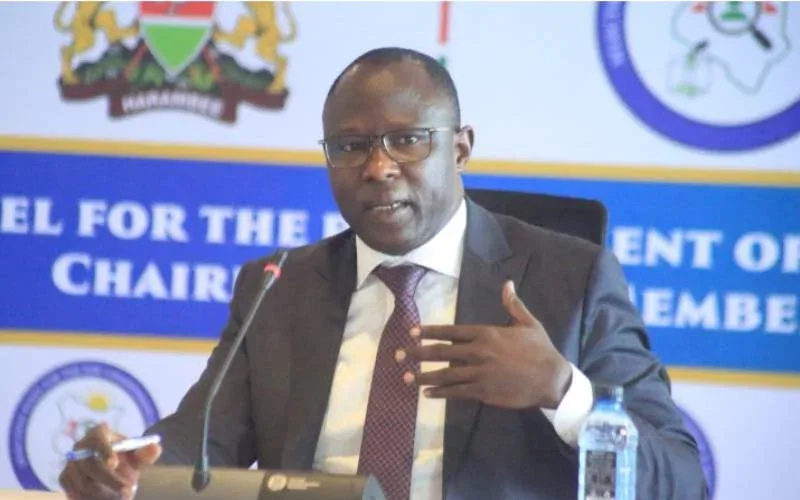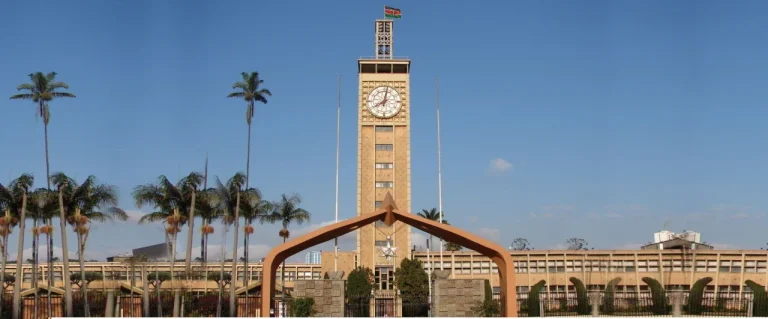With the swearing in of the Chairperson of the Independent Electoral and Boundaries Commission (IEBC) Erastus Edung Ethekon and the other commissioners. The IEBC can now be deemed as duly constituted and is now able to fulfil its mandate. With Kenyans being able to recall a Member of Parliament.

There has been a rising dissatisfaction of the public due to the abdication of the supervisory role which is meant to be carried out by the members of Parliament. Leading to talks of recalling MPs who have been deemed to be against the interests of the people. With the IEBC now in place, this is the time to recall that MP or Senator who has not been performing.
The grounds to recall a member of Parliament in Kenya are as follows.
- Gross violation of the Constitution or any other law.
- Incompetence.
- Gross misconduct.
- If convicted of an offence punishable by imprisonment for at least six months.
The recall for a member of Parliament shall only be initiated twenty-four months after the election of the member of Parliament and not later than twelve months immediately preceding the next general election.
This means that a voter can only recall a member of Parliament in Kenya in the third and fourth year of the member’s term of office.
A recall petition shall not be filed against a member of Parliament more than once during the term of that member in Parliament.
Petition to recall a Member of Parliament in Kenya
The recall shall be in petition form and the petitioner shall file the petition with the Independent Electoral and Boundaries Commission (IEBC).
The petition shall be in writing and the petitioner who signs it shall be a voter in the constituency or county for which they seek the recall.
The petition to recall a member of Parliament shall.
- Specify the grounds for the recall.
- Contain a list of names of voters in the constituency or county. The names shall represent at least thirty per cent of the registered voters; and
- Be accompanied by the fee prescribed for an election petition (The “fee” here is the equivalent of court fees a person who challenges an election of an MP pays when they initiate an election petition)
The list of names shall contain the names, addresses, voter card numbers, national identity card or passport number and signatures of the voters supporting the petition. The list shall also contain names of at least fifteen per cent of the voters in more than half of the wards in the county or the constituency, as appropriate.
The voters supporting a petition to recall a member of Parliament shall represent the diversity of the people in the county or the constituency, where possible. This diversity includes ethnic, cultural and religious diversity.
The petitioner shall then submit the list of names collected to the Independent Electoral and Boundaries Commission within thirty days after filing the petition. The Commission shall then verify the list of names within a period of thirty days after receiving the list.
If satisfied that the petitioner meets all the requirements, the Commission shall within fifteen days after the verification, issue a notice of the recall to the Speaker of the relevant House of Parliament.
Recall elections
The Commission shall conduct a recall election for the relevant constituency or county within ninety days of the publication of the question (to be determined at the recall election). The question shall be in a manner that requires a “yes” or “no” answer.
The Commission shall assign a symbol for each answer to the recall question. The voting at a recall election shall be by secret ballot.
A recall election shall be decided by a simple majority of the voters voting in the recall election.
Where a recall election results in the removal of a member of Parliament, the Commission shall conduct a by-election in the affected constituency or county.
A member of Parliament who has been recalled may run in the by-election. However, there are exceptions.
There will of course be situations where the recalled member may be barred from contesting in the by-election. For instance, where the recall petition arises from violation of Chapter Six of the Constitution; or the Leadership and Integrity Act; or, the Election Offences Act, the recalled member may be barred by the Elections Act from participating in future elections. But if a member is recalled in circumstances that do not bar him as a candidate, it would be unreasonable to invalidate his candidature. The reason is self-explanatory: Under Articles 1 and 38 of the Constitution, all sovereign power belongs to the people. If the voters chose to recall and re-elect the same representative, we must respect their political rights; unless of course where the candidate is expressly barred by law from contesting in subsequent election(s).

